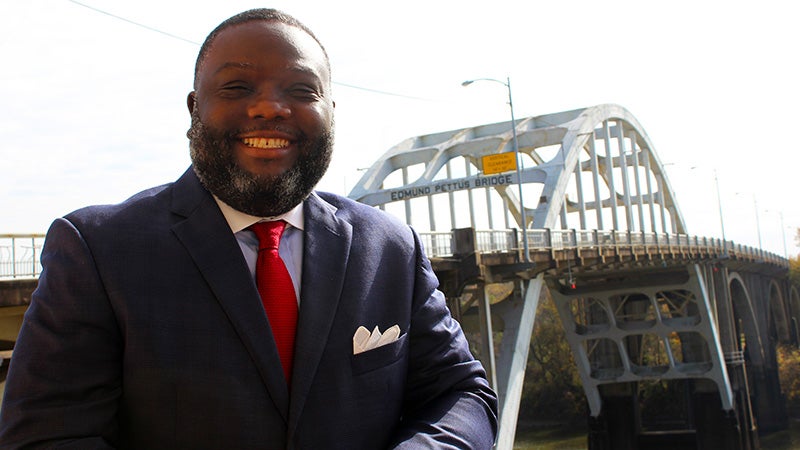Toure calls for reform; council mulls process
Published 9:17 am Thursday, November 26, 2020
|
Getting your Trinity Audio player ready...
|
Local attorney and activist Faya Rose Toure appeared before the Selma City Council Tuesday night to call for the establishment of a due process committee, an independent body she said would be tasked with deciding if police officers are in fact “protecting citizens’ rights.”
In calling for local leaders to take action on policing during this “critical time,” in which the country is awakening to issues of police brutality in the wake of George Floyd’s murder at the hands of Minneapolis police earlier this year, Toure referenced the “creativity” and “moral gall” with which David Dinkins, the first Black mayor of New York City who recently died, addressed violence in his city.
“There is a lot of violence…,” Toure said. “But the root cause has not been addressed.”
Toure alleged to have on hand three complaints filed against the Selma Police Department (SPD) over the last week, which she said show the extent of the problem in the Queen City.
The first complaint was from the family of the toddler recently struck and killed by a vehicle on Philpot Avenue, Toure said, over Selma Police Chief Kenta Fulford’s refusal to provide the child’s family with the name of the driver – Toure asserted that the driver’s name appeared in a news article the following day, but a Nov. 12 article in The Selma Times-Journal did not include the names of the driver or the victim.
A second complaint, Toure said, stems from an incident that occurred only days before the incident on Philpot Avenue, in which a Selma High School student was questioned for two hours in his home regarding a gun, then pepper sprayed, arrested and jailed for a week.
Toure said the student was told by officers that he was lucky he did not end up like George Floyd.
The third complaint, Toure said, related to an incident in which a woman a saw a man “brutally” beaten by Selma police officers.
“These things are going on in Selma right now,” Toure said. “And if this body does not do something to deal with this, the crime and violence will continue…I think this is a new day in Selma and it’s a new day in the country.”
Toure advocated for community policing policies, as well as a raise for local law enforcement, prompting a word of support from Selma City Councilman Clay Carmichael.
Selma City Councilman Michael Johnson noted that he recalled the council previously taking action to launch a Police Review Board and Selma City Councilwoman Jannie Thomas agreed, though no further action was taken to organize the committee.
Discussion arose once again regarding the policy for spending COVID-19 relief funds, informally established by the previous council via emailed minutes distributed by former Selma City Council President Pro Tem Angela Benjamin, which has roiled the council since last Thursday’s work session.
Benjamin spoke during the meeting and accused Selma Mayor James Perkins Jr. of feeding the council inaccurate information, saying that the council’s previously-adopted spending procedure was not illegal and did not interfere with the day-to-day duties of the mayor’s office.
She also took issue with the assertion made by Perkins, as well as Selma City Attorney Major Madison and Selma City Clerk Ivy Harrison, that the process laid out in the emailed minutes – which Benjamin dictated in Harrison’s absence – originated from a June 30 meeting and not the November date on which they were forwarded at Harrison’s request.
“Be careful who you take legal advice from,” Benjamin said to the council. “And when people tell you you’re doing things illegally, go find out from the legal experts…because if you don’t, the stage is going to be set for you and you’re going to be on trial before the public.”
Later in the meeting, Thomas motioned that the council formally adopt the process laid out by the previous council, but Johnson objected.
“I truly think we need to be able to allow the mayor to be able to function like he needs to be on day-to-day operations,” Johnson said. “I think we’re putting handcuffs on the administration moving forward and getting things done.”
“This is not about the mayor or anyone, it’s according to the rules and regulations for how these funds are supposed to be spent. It’s about keeping a record of the way the funds are being spent and according to the guidelines of how these funds are supposed to be used. It’s not about trying to tie hands or who makes the decisions, it’s about getting what we need for the first responders…also, it’s a way of keeping track [so] we can get the reimbursement for these funds. It’s just nothing but a simple guideline.”
As the council discussed whether or not to adopt the process, Carmichael voiced concern over the delay the current process in getting contractors paid, as it currently requires all COVID-19 expenditures to pass through the council.
“Some people haven’t been paid because of the way we’ve been doing business and that’s a little disturbing to me, that something so simple, in an emergency…is taking this long to get paid because it has to come back to the council,” Carmichael said.
In the end, the council voted down the proposal – only Thomas and Selma City Councilman Sam Randolph voted in favor of adopting the process, while Johnson and Carmichael were joined by Selma City Council President Billy Young and Selma City Councilwomen Christie Thomas and Lesia James in voting against the proposal.
Selma City Councilman Atkin Jemison abstained, while Selma City Councilman Troy Harvill passed on the vote.
Young stated that a new process governing the expenditure of state coronavirus funds would be taken up by the council’s Administrative Committee at a later date.




